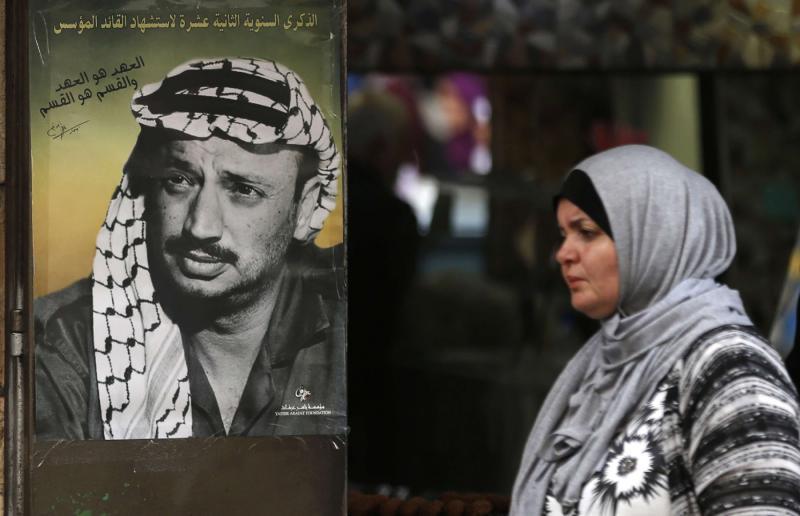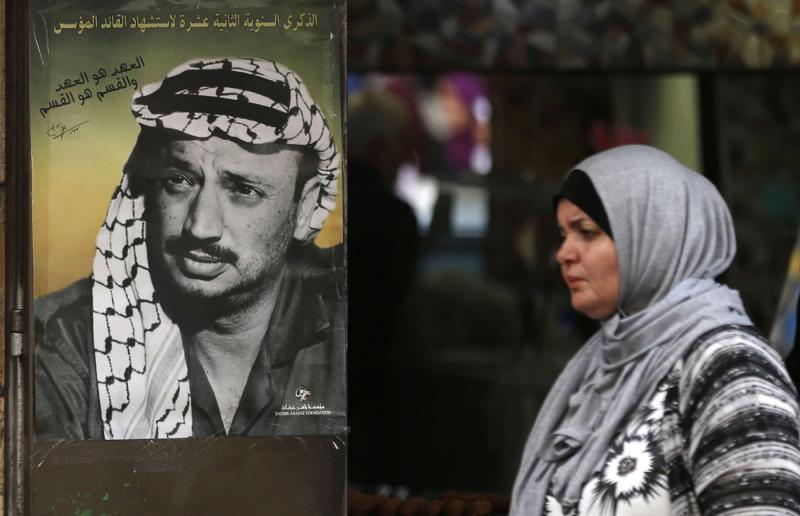The two faces of the Palestinian dilemma
There are two ways of looking at Palestinians’ problems today, including the reality of the Israeli occupation, a frustrating and often degrading experience felt by Palestinians living in the West Bank and the Gaza Strip.
This includes anyone obliged to navigate through Israeli military checkpoints, including the tens of thousands who have no option but to cross the Allenby Bridge, also known as the King Hussein Bridge, linking Jordan to the West Bank, or the Erez Crossing between Gaza and Israel.
Then there is the Palestine as depicted by the leadership’s age-old rhetoric, which is a world apart from reality.
What is that difference? A big one.
The gap is perhaps being bridged by the sense of pragmatism that seems to be dawning on the Palestinians and that should not be mistaken for an abandonment of the Palestinians’ dreams for statehood.
This does not signal an acquiescence to Israel’s right-wing, pro-settlement designs although it offers a rejection by Palestinians of the claim that they are somehow detached from reality. These would be the wrong lessons to draw.
Palestinian pragmatism offers wiggle room for Palestinian President Mahmoud Abbas and for the Trump administration. More room than they think they have.
Surveys by Palestinian pollsters in October indicate unexpected popular flexibility on core issues of an eventual peace deal with Israel, despite widespread scepticism among Palestinians about current peace prospects.
“These findings suggest that American, Israeli and Arab policymakers should all pay more attention to what the Palestinian people really want and less attention to what their politicians or partisans say they ‘should’ want,” writes David Pollock, of the Washington Institute for Near East Policy.
One stunning fact, for example, is the apparent readiness of most Palestinians to make major concessions on issues such as the right of return of Palestinian refugees. The most startlingly moderate results from the surveys centre on that issue. Another indication of the polls is a strongly moderate view in Gaza, where the Islamists of Hamas have taken control from the far more moderate Palestine Liberation Organisation.
Two-thirds of Gazans asked said Palestinians should accept that the right of return not apply to Israel but only to the West Bank and Gaza if that is the price of a Palestinian state. These are strange words coming from a territory where most of the population are children of refugees.
An overwhelming majority — 79% — of respondents said they would accept the permanent resettlement of Palestinians from other countries in just the West Bank or Gaza, “even if that is not where their families originally came from.”
A somewhat smaller majority (59%) said it would be a good idea if “Arab states offered extra economic aid to resettle Palestinian refugees in the West Bank or Gaza but not inside Israel.”
What this says, especially as far as Gaza goes, is that the people’s view of the conflict is light-years apart from that of their leadership, which seems stuck in the twilight zone of the 1960s and ‘70s and afraid to navigate in any uncharted waters.
Two-thirds of West Bankers asked said they would accept permanent resettlement of diaspora Palestinians in the West Bank or Gaza even if their families were from inside what is today Israel.
Interestingly, both surveys indicated that a solid majority of West Bank respondents said, “regardless of what’s right, the reality is that… most Palestinians will not return to the 1948 lands.” In Gaza, the view was the same: 61% in one poll and 54% in the other.
This is very revealing, given Hamas’s position on the matter and on another major point that has held back progress in the conflict — Israel as a Jewish state.
Here, once more, the people are apparently significantly more open to negotiations than their leaders. If Israel “recognises an independent Palestinian state and ends the occupation of the West Bank and Gaza,” 55% of Gazans, 36% of West Bankers and 60% of people from East Jerusalem contacted by pollsters said they would accept Israel as “the state for the Jewish people.”
Compare that to rhetoric from top Palestinian or Arab leaders, not to mention Hamas, which persistently states that it will never recognise Israel at all, let alone its “Jewish character.”
One issue that understandably remains a point of great anxiety for Israel is whether the creation of a Palestinian state could end the conflict or simply forestall the issue.
Asked if a two-state solution should end the conflict, West Bank respondents chose “end the conflict” by a sizeable margin — 50-37%. Gazans are almost evenly split — 47-49% — on the issue. East Jerusalem Palestinians, who maintain everyday contact with Israelis, decisively foresee the two-state solution as an end of the conflict by 73-22%, pollsters said.
Asked if Hamas must stop calling for Israel’s destruction and accept a permanent two-state solution, results are clearest in Gaza where more people said they favour a peaceful policy shift. West Bankers also support the peace approach, 58-30%.
Food for thought in these days of turbulence and unrelenting violence.
For Americans and Israelis who are sincerely interested in making a fair deal with the Palestinians, it should show that the window of opportunity is there.
Claude Salhani is a regular columnist for The Arab Weekly.
This article was originally published in The Arab Weekly.







